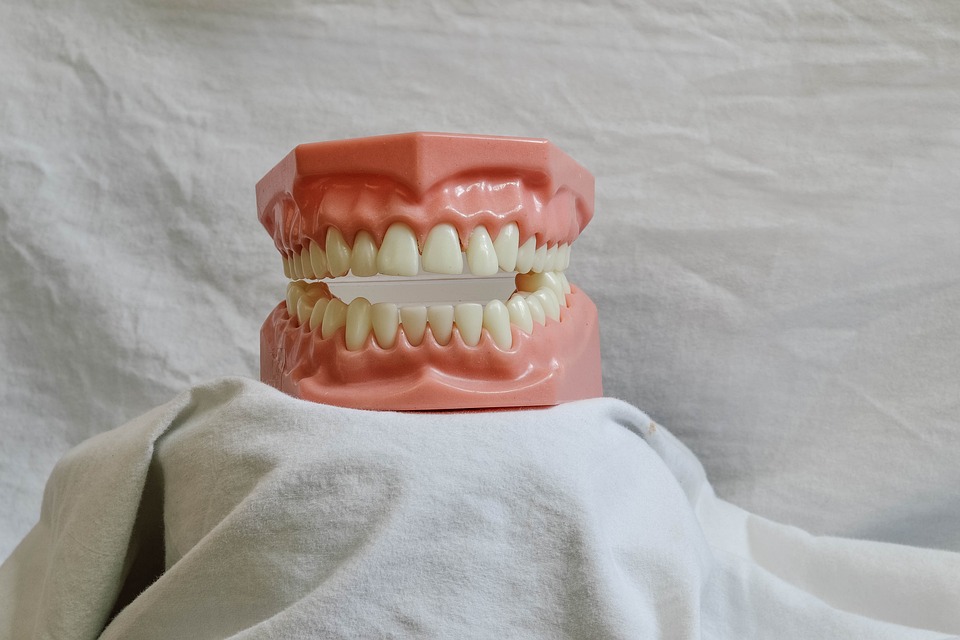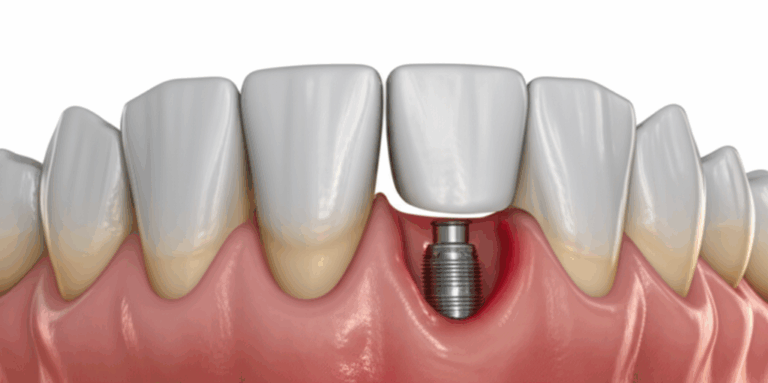
How Much Are Permanent Dental Implants
Wondering how much permanent dental implants really cost? You’re definitely not the only one. If you’re missing a tooth or two, or just want a better smile, the price is usually the first thing on your mind. In this article, I’ll explain what you’ll likely pay, what those costs mean, if they’re worth it, and how to save money without spending too much. Knowing this ahead of time can save you money, stress, and regret later.
Article Outline
- What Are Permanent Dental Implants?
- Why Are Dental Implants So Expensive?
- What Drives Up Dental Implant Prices?
- How Much Does One Dental Implant Really Cost?
- Is Getting All Your Teeth Done With Implants Even Pricier?
- What Other Costs Should You Know About?
- Is Going With a Cheaper china dental lab a Good Idea?
- How Can You Pay for Dental Implants Without Spending Too Much?
- Does Insurance Help Pay for Dental Implants?
- Are Permanent Dental Implants Worth the Cost?
- How Can You Keep Dental Implant Costs Down?
- Final Thoughts: Can You Afford a New Smile?
1. What Are Permanent Dental Implants?
Let’s start by explaining a dental implant. It isn’t a fake tooth you take out, like dentures. Instead, think of it as a metal post (usually titanium) that goes into your jawbone. Then, your dentist puts a crown on top of it—a cap that looks and feels like a real tooth.
If you just lost one tooth, you only need one implant. Missing a few? There are options for that as well. Now, dental labs use digital scans to make sure your implant and crown fit just right. Thanks to technology, getting a new tooth today is much easier than before.
2. Why Are Dental Implants So Expensive?
Let’s be real—dental implants are not cheap. Why? Compared to other dental care, the price can sound huge. But think about it: you’re getting surgery, real titanium or zirconia parts, made-to-fit crowns from places like emax dental labs, and you’ll visit the dentist more than once.
Plus, you’re paying for trained experts. Oral surgeons and dentists study for years to do this work right. So, even if it feels expensive, remember that you’re paying for quality and something that lasts a long time.
3. What Drives Up Dental Implant Prices?
Before you pay, ask why it costs what it does. Here’s what can make the price go up:
- Bone grafts—if your jawbone is too thin or weak.
- How many teeth you are replacing—one is much less than a full set.
- The type of crown you pick—emax or zirconia crowns from a top lab cost more.
Extra scans or special guides made by dental labs also add to the bill. Every step adds up.
4. How Much Does One Dental Implant Really Cost?
So, what will you actually pay? In the U.S., one dental implant (the metal root, connector, and crown) usually costs $3,000 to $6,000, or even more. That covers surgery, the piece that connects the implant and crown, and the crown itself. Sometimes you’ll hear a lower price, but double-check if that includes everything.
Prices change depending on where you live. Big cities are usually more, but in smaller places or offices that use a china dental lab, you might find it lower. Still, it’s rare to find a good implant under $2,500 in the U.S.
5. Is Getting All Your Teeth Done With Implants Even Pricier?
Replacing all your teeth with implants is in a different league. You may need four to eight implants in your jaw, plus bridges or a row of teeth on top. The final cost can hit $25,000, $40,000 or even more for both top and bottom.
Sounds like a lot, but think about the other choices. Dentures can move around, but implants are steady and strong. For many people, the price is worth having teeth that work like natural ones and feeling good about smiling and eating again.
6. What Other Costs Should You Know About?
Here’s where it can get confusing. The first price you hear is often just the start. Need special x-rays or a CT scan? That’s extra. Want to be asleep for surgery or take medicine for nerves? You’ll pay more.
If your jawbone isn’t thick enough, you’ll need a bone graft—that’s another bill. And if you want a super-tough crown, like one from an emax dental lab or a sparkly zirconia one, expect the price to rise.
If you don’t ask “What’s included?” you could get a much bigger bill later—so always double-check!
7. Is Going With a Cheaper China Dental Lab a Good Idea?
Lots of people want to save money by getting dental crowns or parts from a china dental lab. Does it work? Sometimes it does. Labs overseas, especially in China, can make crowns and implant parts for much less than U.S. labs.
But there’s a problem: If something goes wrong, like a crown not fitting or breaking, it can be hard and slow to fix. Time zones, shipping delays, and language can get in the way. Plus, you may not know if the crown is good quality until it’s in your mouth.
What’s the best way? If your dentist uses a trusted lab, whether local or from another country, and stands by their work, you can sometimes save money. But remember, cheaper isn’t always best over time.
8. How Can You Pay for Dental Implants Without Spending Too Much?
Let’s face it—implants are costly. But there are ways to make it easier. Some companies and dentists let you make payments monthly instead of all at once. Some dentist offices even offer their own plans for payments.
If you check different offices, ask if they’ll match lower prices from other clinics. Places sometimes lower their prices to stay competitive. Also, dental schools sometimes do implants for less because students, watched closely by teachers, do the work.
Thinking about going to another country for surgery? “Dental tourism” is common now—places like Mexico or Thailand offer the same work for half the price because their costs are lower.
9. Does Insurance Help Pay for Dental Implants?
Here’s the hard truth: Most dental insurance doesn’t pay for implants and calls them “cosmetic.” That alone stops some people.
It can be really frustrating to pay for insurance, but when you need it, hear “Not covered.”
But there is some hope—check your medical insurance. If you lost teeth in an accident or from a health problem, sometimes medical insurance covers part of the cost. Some better dental plans are starting to cover part of implants too. Always check and ask—it might help.
10. Are Permanent Dental Implants Worth the Cost?
Let’s answer this clearly. Dental implants can last many years—sometimes your whole life. Fake teeth, bridges, or partial dentures wear out and may need replacing, which also costs money and is inconvenient. Implants are simple—just get them and forget about them.
If you want to eat what you like, smile without worry, and not think about your teeth all the time, then yes, implants are often worth it. Many patients go from hiding their smiles to loving every photo. The confidence you get is hard to put a price on.
11. How Can You Keep Dental Implant Costs Down?
Planning ahead is super important. Here’s some helpful advice:
- Ask for a written paper with every cost listed—not just the implant.
- If your dentist uses a 3d dental lab or emax dental lab, check the different crown materials and prices. Sometimes, picking zirconia costs less than other types or skipping extra cosmetic touches drops the price.
- Take care of your teeth before and after you get the implant. If you have good dental habits, your implant will last longer and you’ll spend less in the long run.
It can also help to ask another dentist for their opinion. Just like any big purchase, it pays to look around. Not every dentist charges the same price.
12. Final Thoughts: Can You Afford a New Smile?
Getting dental implants might seem impossible when you see the cost. But take a step back and look at the big picture: better health, stronger chewing, and feeling better about yourself. Take it one step at a time, plan well, and look at payment or insurance choices.
Remember, you don’t need to spend all your savings for a new smile. You might find an option that works for you—and your wallet.
Most Important Things to Remember
- Dental implants cost more than other ways to fix missing teeth, but they last much longer.
- Prices usually run from $2,500 to over $6,000 for each tooth—and much higher for all your teeth.
- Cost depends on the material (like zirconia or emax crowns), your dentist’s skill, and if you need more work (bone grafts, sedation).
- Get a full, written cost list before you start any work.
- Most dental insurance doesn’t pay for implants, so check for extra dental plans or ask about medical coverage.
- Comparing local and overseas labs, like a 3D dental lab or a china dental lab, might help you save—but think about the risks.
- Payment plans make it easier for many people to afford implants.
- Take good care of your implants. Brushing and flossing saves you money in the future.
- Getting implants can mean more than just teeth—it’s about confidence, health, and happiness.
A great smile can change your life. If you’re thinking about dental implants, don’t let cost be the only thing you think about. Ask questions, plan smart, and you might find yourself smiling more than ever—for years ahead.








